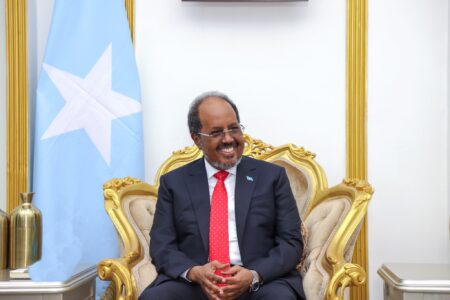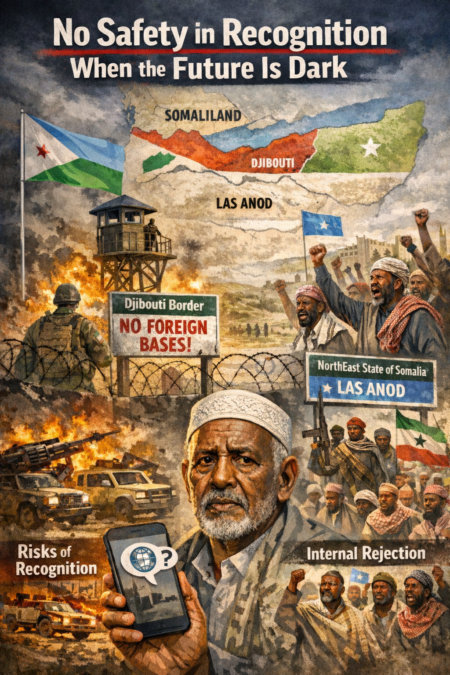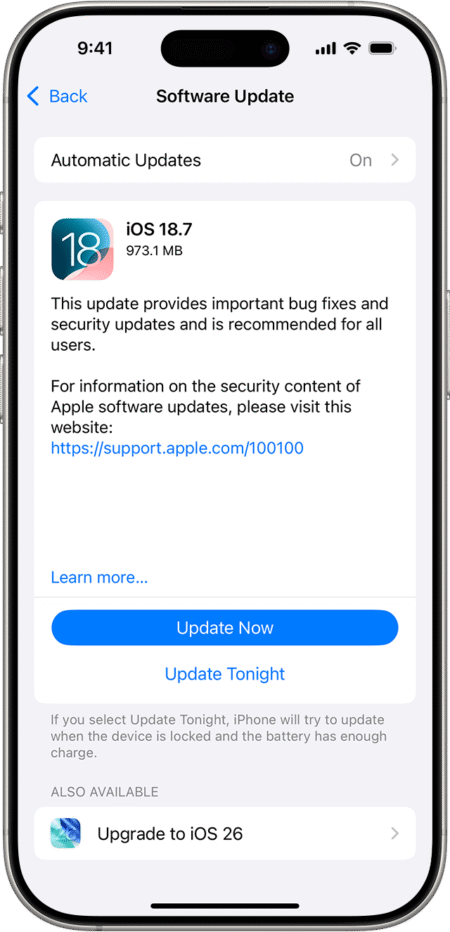Mogadishu, Qaran24 – In a time when Somalia faces ongoing threats from extremist groups, the issue of public demonstrations has become increasingly sensitive. The government has recently reaffirmed that no protest may occur without prior legal authorization, a stance that has attracted both criticism and support.
To clarify the legal foundation of this policy, Qaran24 spoke with leading legal expert Abdullahi Yabarow, who firmly defended the government’s legal stance.
Rights Recognized—But Not Absolute
Understanding the Legal Context of Protest
Somalia’s Provisional Constitution (2012) guarantees both freedom of expression (Article 18) and the right to peaceful assembly (Article 20). International treaties, such as the International Covenant on Civil and Political Rights (ICCPR, Article 21), echo these protections.
Yet, as Yabarow explained, these rights are not without limits:“Our Constitution gives citizens the right to protest peacefully, but it also allows the state to impose restrictions when public order, safety, or national security are at risk,” he said. “No democracy anywhere in the world allows protests without regulation. Somalia cannot be the exception—especially when extremists are actively plotting to exploit such gatherings.”
Quote
“Permission is the safeguard that keeps both freedom and security intact. Without it, extremists win.” – Abdullahi Yabarow.
Abdullahi Yabarow
Somalia’s security forces continue to wage war against Al-Shabaab and other extremist groups determined to destabilize the nation. In this context, Yabarow argued, the government’s requirement for prior permission is not only legal but essential.
- “Terrorists are opportunists. An unregulated demonstration provides the perfect cover for them to infiltrate crowds and cause destruction,” he warned. “Seeking permission allows authorities to prepare, deploy security, and ensure that protests remain peaceful rather than becoming tools of chaos.”
Order and Coordination
According to Yabarow, prior authorization is a matter of coordination, not censorship:
- It allows police to safeguard protest routes.
- It helps prevent clashes between rival groups.
- It ensures that ordinary citizens are not caught in disorder.
“This is about protecting citizens and strengthening democracy, not weakening it,” he told Qaran24. “Without such safeguards, protests can turn violent and undermine the very freedoms they are meant to express.”
Qaran24’s Analysis
The government’s position finds strong legal backing. Both Somali law and international law permit the regulation of protests, provided that the restrictions are lawful, proportionate, and non-discriminatory. In a fragile security environment, requiring permission before demonstrations is not repression; it is a responsible approach.
Somalia’s young democracy cannot afford reckless gatherings that extremists could exploit. As Abdullahi Yabarow put it:
“The right to protest remains sacred, but in a country battling terrorism, it must be exercised responsibly. Permission is the safeguard that keeps both freedom and security intact.”
For Somalia today, the message is clear: protest, yes—but only within the law.





